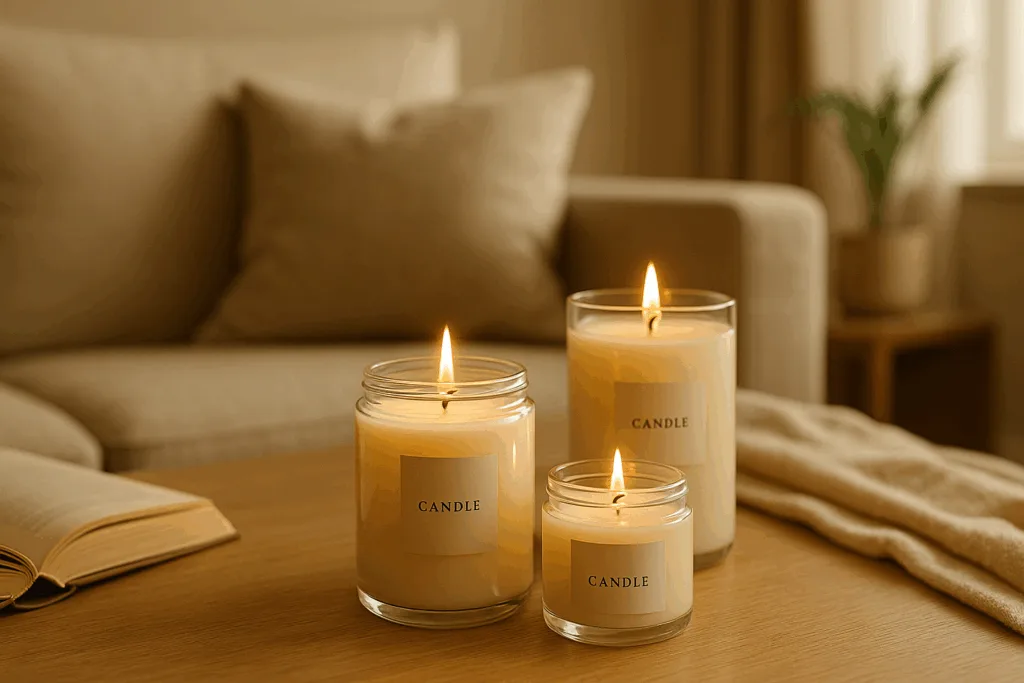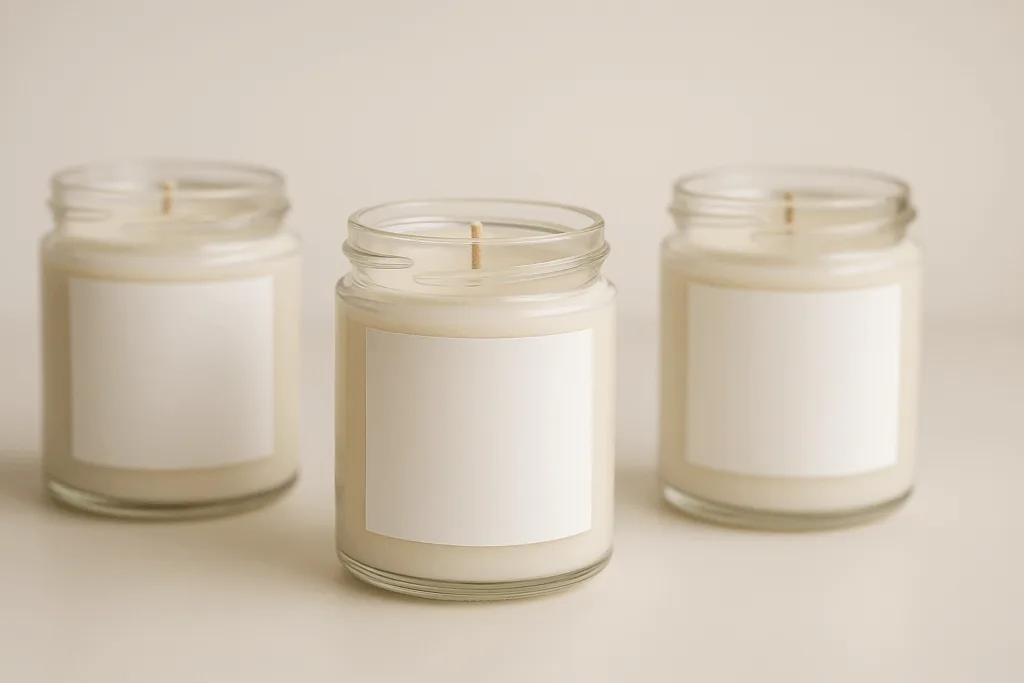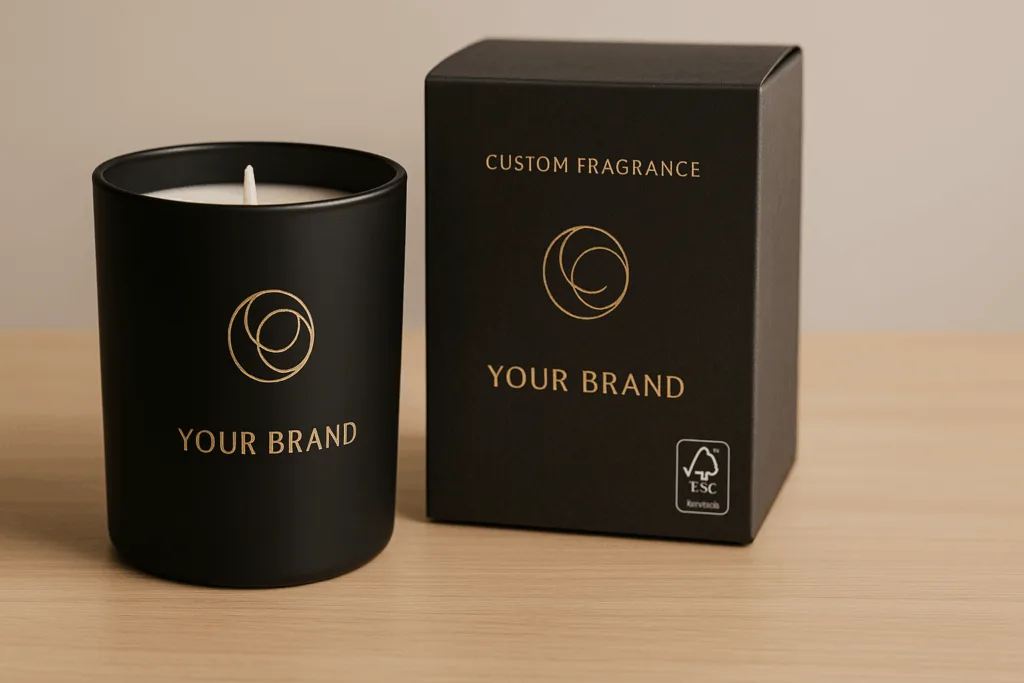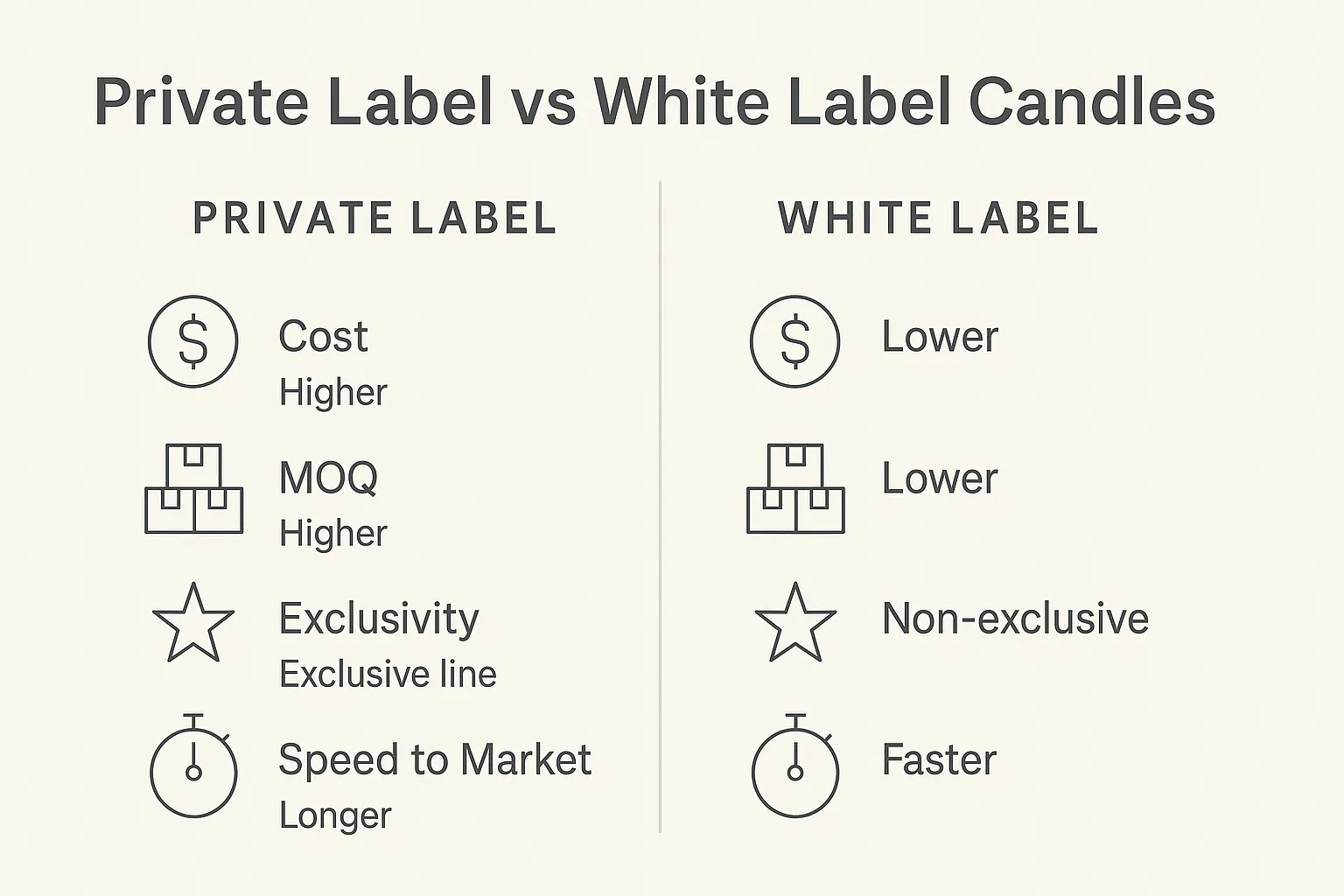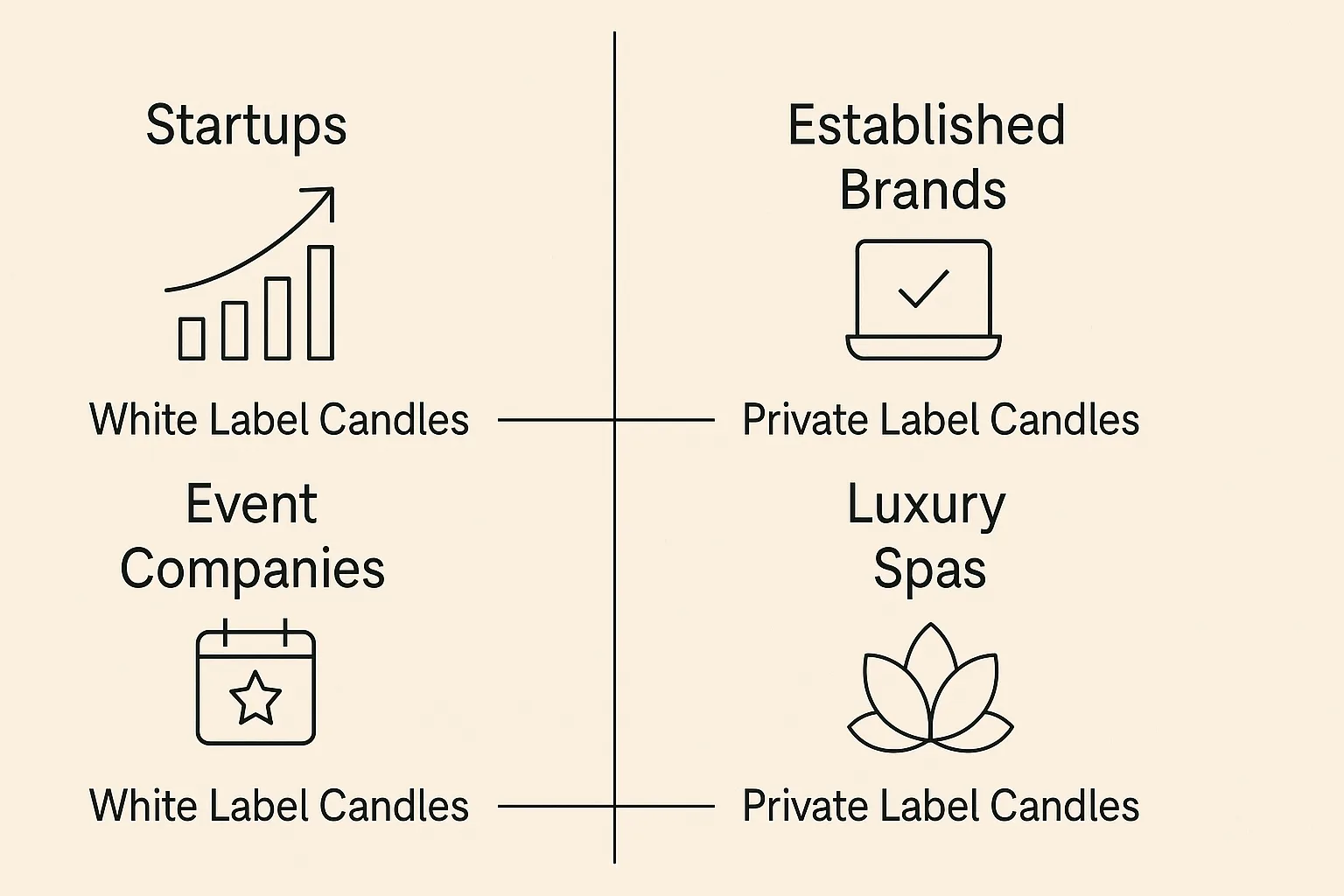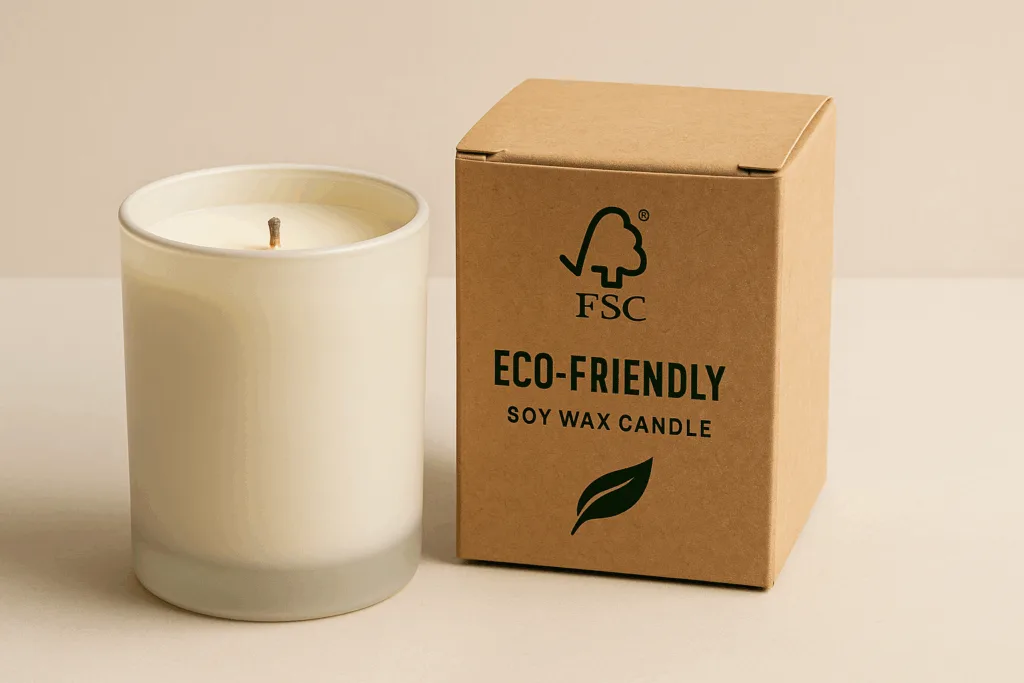Introduction: Why This Question Matters
When sourcing candles for retail or wholesale, many business owners find themselves asking the same crucial question: Should I choose private label or white label candles? This choice can significantly influence profit margins, brand identity, and long-term growth. For emerging businesses, the decision often revolves around risk reduction and speed. For established brands, it’s about exclusivity and differentiation.
In the candle industry, this decision is particularly important. Consumers are highly sensitive to design, fragrance, packaging, and sustainability. By understanding the differences between private label vs. white label candles, businesses can make a strategic decision aligned with their goals.
Understanding the Basics of Labeling in Candle Manufacturing
Before comparing, let’s define the two approaches.
What Are White Label Candles?
White label candles are pre-designed, ready-made products created by manufacturers. Buyers simply place their logo or brand name on the product, making it quick and easy to enter the market. There’s little to no customization in fragrance, packaging, or design.
What Are Private Label Candles?
Private label candles are highly customizable. Businesses collaborate with manufacturers to develop unique fragrances, vessels, packaging, and certifications. This approach creates exclusivity, allowing brands to stand out in competitive markets.
Core Differences Between Private Label and White Label Candles
To better understand, here’s a detailed comparison:
| Feature | White Label | Private Label |
|---|---|---|
| Customization | Minimal | Extensive (fragrance, vessel, packaging, certifications) |
| Cost | Lower | Higher investment |
| MOQ (Minimum Order Quantity) | 100–500 units | 500–5,000 units depending on complexity |
| Exclusivity | Shared by multiple brands | Unique to your brand |
| Speed to Market | 2–6 weeks | 3–6 months |
| Profit Margins | Standard | Premium |
Flexibility and Customization Options
- White Label: Limited flexibility. Buyers choose from existing collections.
- Private Label: Full creative control, from fragrance blending to packaging design.
Cost and Minimum Order Quantity (MOQ)
White label candles typically require smaller upfront investment, making them attractive for startups. Private label candles often involve higher design fees, minimums, and development stages but can generate higher margins per unit.
Exclusivity and Brand Identity
If exclusivity matters, private label is the clear winner. It protects your brand identity and prevents market saturation with identical products.
Speed to Market
White label products allow a brand to launch quickly, while private label takes time but rewards businesses with stronger differentiation.
Which Buyers Benefit Most from Each Model?
Here’s a simplified framework for matching buyer type with candle model:
| Buyer Type | Best Fit | Reason |
| Startups & Small E-commerce | White Label | Lower cost, fast testing, reduced risk |
| Established Brands | Private Label | Stronger branding, higher margins |
| Event & Seasonal Companies | White Label | Quick turnaround, flexible volumes |
| Luxury Boutiques & Spas | Private Label | Exclusivity and premium positioning |
Startups and E-Commerce Sellers
White label is perfect for beginners—lower risk, faster market testing, and minimal investment.
Established Brands and Large Distributors
Private label fits established players who need strong differentiation and can manage larger MOQs.
Event and Seasonal Gift Companies
White label supports fast turnarounds for holiday or event-driven demand.
Luxury Boutiques, Hotels, and Spas
Private label allows for exclusivity and a premium customer experience.
Real-World Examples from the Candle Industry
White Label Case Study: Classic Soy Jar Candles
A U.S. online retailer launched a white label soy jar collection. They focused on seasonal packaging but kept fragrances standard. This allowed rapid expansion with low investment.
Private Label Case Study: Customized Holiday Collections
A European retailer collaborated with Circe Home to design limited-edition Christmas scents with FSC-certified packaging. This private label project boosted brand loyalty and positioned the brand as eco-conscious.
Key Benefits Recap for B2B Buyers
Advantages of White Label Candles
- Low cost and low risk
- Quick market entry
- Flexible for testing products
Advantages of Private Label Candles
- Strong brand identity
- Higher profit margins
- Exclusive collections
Practical Decision Framework: Choosing the Right Model
- If you want to test the market quickly → White Label
- If you aim to build long-term brand equity → Private Label
Industry Trends Influencing Label Choices
The Shift Toward Sustainable Materials
Data from the National Candle Association shows that 65% of U.S. consumers now prefer candles made from natural or eco-friendly waxes. This impacts both white label and private label production.
Increasing Demand for Personalized Experiences
A 2024 consumer insights study revealed that nearly 70% of millennials are more likely to purchase a product if it offers customization options, underscoring the appeal of private label.
Circe Home’s Role in Supporting Both Models
Full-Service White Label Solutions
Circe Home offers ready-to-market collections with customizable labels and packaging. This includes seasonal lines designed for fast-moving retail.
Tailored Private Label Candle Development
Our team works with brands to create exclusive fragrances, luxury vessels, and eco-friendly packaging. From FSC-certified boxes to vegan wax blends, we help brands align with market trends.
Call to Action: Partner with Circe Home
Whether you want to test the market with white label products or design an exclusive private label collection, Circe Home provides complete support—from design to production.
Contact us today for free samples and consultation.
FAQ: Common Questions About Private Label vs. White Label Candles
1. What is the main difference between private label and white label candles?
White label candles are pre-made with limited customization, while private label candles are custom-designed and exclusive to a brand.
2. Which model is more cost-effective?
White label is cheaper upfront with smaller order quantities. Private label requires higher investment but offers stronger branding and margins.
3. How long does it take to launch private label candles?
Typically 3–6 months, depending on design, fragrance testing, and packaging development.
4. Are eco-friendly options available in both models?
Yes. Circe Home provides sustainable materials for both white label and private label candles.
5. Can I switch from white label to private label later?
Absolutely. Many businesses start with white label to test demand before moving into private label development.
6. What kind of certifications can private label candles have?
Private label candles can include certifications such as FSC, cruelty-free, and vegan, depending on brand goals.
7. Which model is better for seasonal product launches?
White label is faster and more flexible for short-term seasonal demand, while private label is ideal for long-term holiday branding campaigns.
8. How do costs compare over time?
While white label is cheaper initially, private label often leads to better margins and customer loyalty, making it more profitable long term.
Conclusion
Choosing between private label vs. white label candles depends on your brand’s stage, budget, and goals. White label suits quick launches and low risk, while private label is ideal for building a strong brand identity. Circe Home supports both pathways with professional expertise and sustainable practices.

